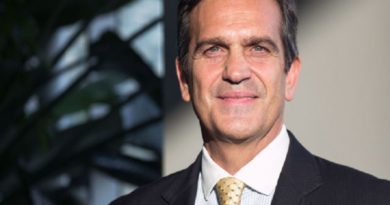Reactions as Paris Agreement reached double thresholds
The Paris Agreement today reached the double thresholds as 73 Parties have ratified the Agreement accounting for 56.87% of the global Green House Gas (GHG). With the historic moment, the Agreement will enter into force in 30 days.
Reacting to the development, Climate Action Network, a network of over 1100 civil society organizations in 120 countries, working to fight climate change hails the historic moment as the double threshold of 55 countries representing 55% of global emissions ratifying the Paris Agreement was crossed today, thereby enabling the Agreement to enter into force in 30 days.
“The unprecedented speed at which countries have come together to move this Agreement forward, in less than a year since it was negotiated, is commensurate with the urgency that we need to tackle the pace and scale at which climate change is damaging our economies, threatening livelihoods and destroying the planet. Galvanizing action to implement the Paris Agreement must now begin in earnest by leaving the era of fossil fuels behind us and embracing a 100% renewable energy future,†said Wael Hmaidan, International Director, Climate Action Network
Members and regional nodes of the network reacted to the news as follows: “This early entry force of the Paris Agreement is a huge step forward in the fight against climate change. All eyes now turn to Marrakesh where the EU can prove that its fast-track ratification was not just an act of political grandstanding, but a testimony to support the need to urgently scale up climate action in all countries and across all sectors. To show the world that it’s serious about reaching the objectives of the Paris Agreement, the EU must bring to COP22 in Marrakesh a concrete plan for how to scale up action before 2020 as well as a plan for how they will review its inadequate 2030 target by 2018 the latest”. Wendel Trio, Director at Climate Action Network (CAN) Europe.
Executive Director, Greenpeace International , Jennifer Morgan said,  “The unprecedented speed of the entry into force of the Paris Agreement demonstrates that Paris was not a one-off deal, but rather a long-term commitment to climate action. It also demonstrates the urgency of the matter. Now that a truly global binding climate agreement is in place, governments should have the confidence to not only meet but also beat their national targets and provide support to the poorest countries. This means a managed decrease in fossil fuel dependency and increasing investment in renewable solutions. The opportunities for communities for a clean and just future that Paris signals are tremendous.”
“The speed at which the Paris Agreement has come into force has been remarkable. But we now need to see tangible actions to follow just as quickly. As Hurricane Matthew leaves destruction across Caribbean we’re reminded that our climate continues to undergo rapid change and we are continuing to pollute it.
The Paris Agreement was like a breakthrough at a rehab centre. World leaders admitted for the first time they had a fossil fuel addiction problem and would clean up their act. The question now is will they stick to this new path or will they fail at the first difficult decision. Like a junkie coming off drugs they need to actually wean themselves off the damaging substance. Their attitude to their Paris Agreement promises will be tested in the coming few days. It’s imperative that they agree an ambitious global phase down of climate warming HFCs in Rwanda next week.” Mohamed Adow, Senior Climate Advisor, Christian Aid.
“The fact that the Paris Agreement is taking effect much earlier than anticipated shows that leaders understand the need for collective action to confront the growing climate threat. Last month’s joint announcement by the U.S. and China that they had joined the agreement clearly spurred other countries to speed up their domestic processes, ensuring that the first meeting of parties to the Paris Agreement will take place next month in Marrakech. While this milestone is certainly cause for celebration—perhaps with a glass or two of French Champagne—much hard work lies ahead. Countries must now move aggressively to implement and strengthen their emissions reduction commitments under the agreement if we are to have any chance of avoiding the worst impacts of climate change.†Alden Meyer, Director of Strategy and Policy, Union of Concerned Scientists.
“It is great to see countries rallying behind each other to ratify the Paris Agreement, resulting in perhaps the fastest every multilateral agreement to come into force. I do hope that this speed of action continues in the implementation of the Paris Agreement too, particularly urgent and comprehensive actions to drastically cut GHG emissions and countries cooperate and work together to collectively keep temperature rise to under 1.5 C degrees.” Srinivas Krishnaswamy, CEO, Vasudha Foundation, India.
Leaders from businesses and business groups commented: “The entry into force of the Paris Agreement just ten months after COP21 is a defining moment for the global economy. It sends an unmistakable signal to business and investors that the global transition to a low-carbon economy is urgent, inevitable, and accelerating faster than we ever believed possible.â€Paul Polman, CEO of Unilever and Chairman of the World Business Council for Sustainable Development.
Peter Bakker, President of the World Business Council for Sustainable Development said “There is the world before Paris and the world after Paris. We are entering an era of system transformation. Business is already playing a leadership role through global collaboration and low carbon partnership initiatives to drive innovation and structural change. We now need to scale up and speed up the implementation of the Paris Agreement through more ambitious NDCs supported by leveraged financial resources.â€
Richard Lancaster, CEO of CLP said, “Successful ratification of the Paris Agreement demonstrates clearly the political will of the signatories. Now businesses are enabled to work together with governments and communities to shape the policies and take the actions necessary to transition to a low carbon future.”
The historic Paris Agreement was achieved during the last climate talks held in Paris, France in December 2015.




